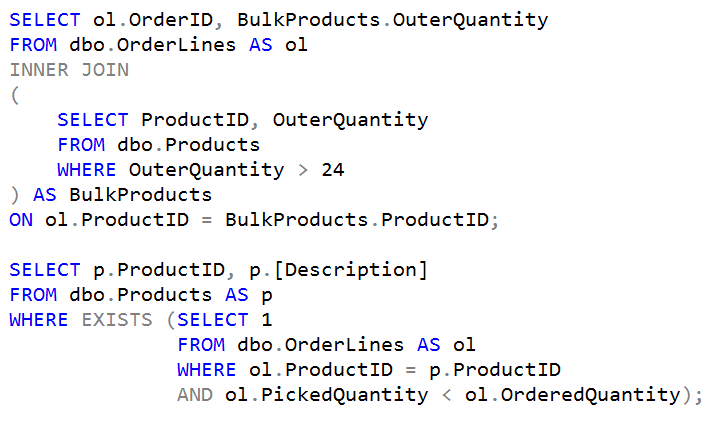Setting Up a Secure Webhook in an Azure Monitor Action Group
February 22, 2025
Advanced KQL Queries for Logic Apps in Application Insights: A Practical Guide
February 23, 2025
This is a post in the SQL Interview series. These aren’t trick or gotcha questions, they’re just questions designed to scope out a candidate’s knowledge around SQL Server and Azure SQL Database.
Section: Development
Level: Medium
Question:
A query included within a stored procedure, has a predicate written like this:
WHERE ISNULL(ProductSize, '') = ISNULL(@ProductSize, '')
A problem has been identified with this predicate. The system needs to be able to differentiate between NULL values for product size and blank strings. Currently both are treated as though they are the same.
What is the issue and how could you rewrite it to avoid the issue?
Answer:
The issue is that whatever value is passed as the second parameter to ISNULL in this case, won’t be treated differently to the lack of a value (i.e., NULL). The blank string is an example of a magic value i.e., one that means something different to what it says.
There are many ways but the following would work:
WHERE ProductSize = @ProductSize OR (ProductSize IS NULL AND @ProductSize IS NULL);
The post SQL Interview #23: Logical issues related to ISNULL in SQL Server T-SQL appeared first on The Bit Bucket.


